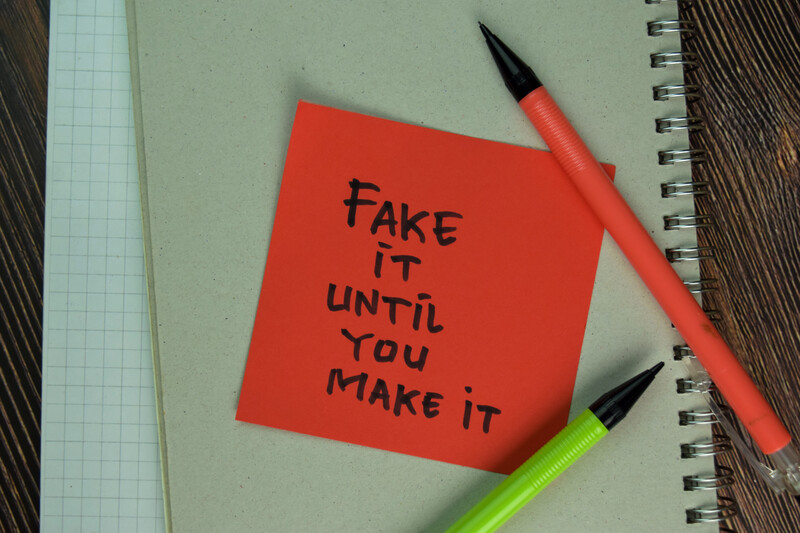


You Won’t Make It If You Fake It
By Bill George for Harvard Business School –
The cover of last January’s Harvard Business Review featured the subhead, “When it’s OK to fake it till you make it.”
“Faking it” is the antithesis of authentic leadership. Following this advice is the most likely path to failure as a leader. You cannot act like a leader until you go through the hard steps of developing yourself from within.
With the visible failures of leaders who tried to fake it, people have developed sensitive “sniff tests” and can quickly identify who is authentic and who is not. If you fake leadership, people will be unwilling to follow your lead and will resent your attempts to exert power over them.
“IF YOU FAKE LEADERSHIP, PEOPLE WILL BE UNWILLING TO FOLLOW YOUR LEAD”
Developing as a leader is hard work. It is similar to the rigorous training and required experience that surgeons, musicians, or athletes must go through before excelling in their fields. Can you imagine doing brain surgery without proper training? Or playing the cello at Carnegie Hall or tennis at Wimbledon without years of training and practice?
Just as you cannot learn these skills solely in the classroom, leaders must undertake rigorous personal development and have multiple leadership experiences before they are prepared for major leadership assignments. Through these processes, they learn about themselves and how to lead diverse people through complex challenges.
Look at the sad case of Theranos CEO Elizabeth Holmes. She is a talented person who rose to fame too quickly, until Theranos was challenged by a Wall Street Journal investigation. On the surface, Holmes’ story seemed to be the perfect narrative. The would-be Silicon Valley entrepreneur dropped out of Stanford at the age of 19 to found Theranos, a company attempting to replace blood-testing draws with single drops from the finger. Holmes’ rapid rise to fame put her on a fast track to success, with high expectations and intense pressures. Yet she hadn’t had adequate leadership experience leading people through difficult and complex business problems.
Holmes created a $9 billion valuation on paper by selling venture capitalists on her idea and raising $400 million. She assembled a celebrity board, convinced Safeway to spend $350 million to build clinics in its supermarkets, and signed partnerships with Cleveland Clinic and Walgreens. She attracted celebrity media attention with headlines like “Queen Elizabeth: Mystique of Theranos Founder Grows.” She received prestigious accolades, being named Presidential Ambassador for Global Entrepreneurship, youngest winner of the Horatio Alger Award, and one of Time’s 100 Most Influential People (2015).
Then it all came crashing down.
On October 16, The Wall Street Journal reported that the data Theranos submitted were insufficient to prove the accuracy of many of its tests. In spite of her seeking media visibility, Holmes did not offer comments for this article. Five days later, she said the company was in a “pause period.” Subsequently, Walgreens halted expansion of its Theranos blood-testing centers, and in early November, Safeway announced dissolution of its partnership. For more, click here.